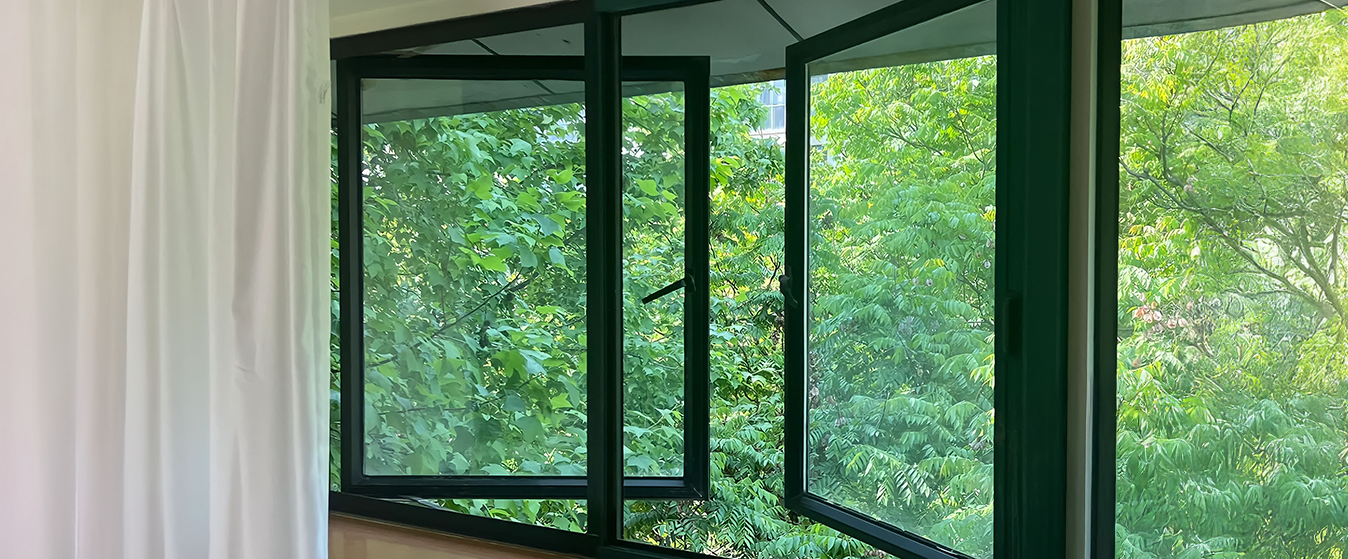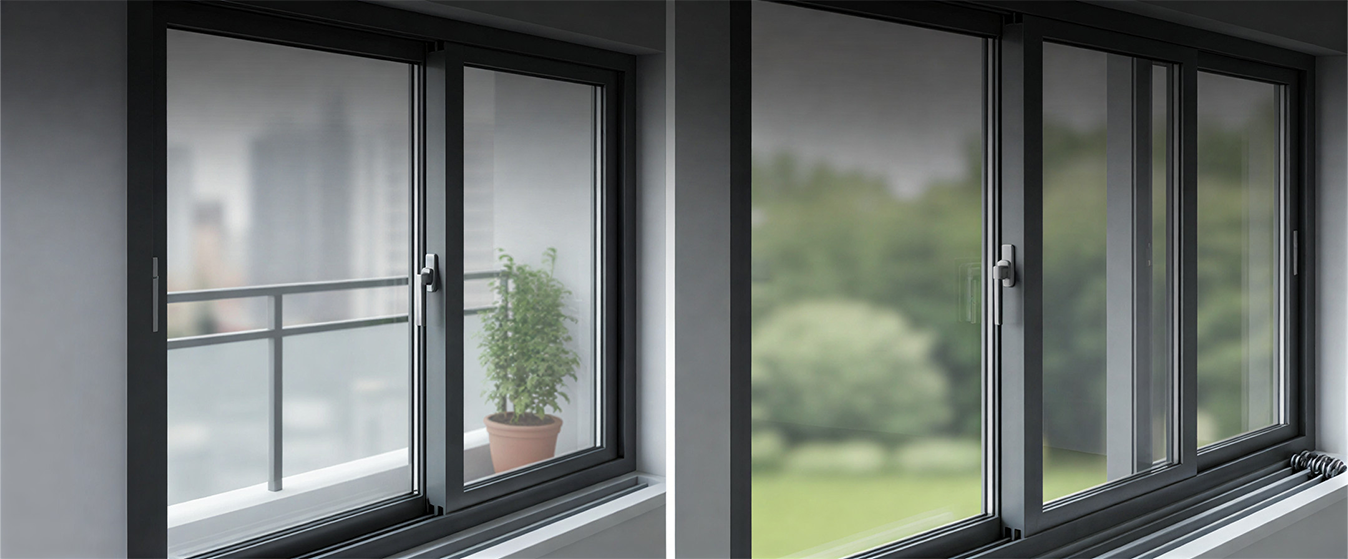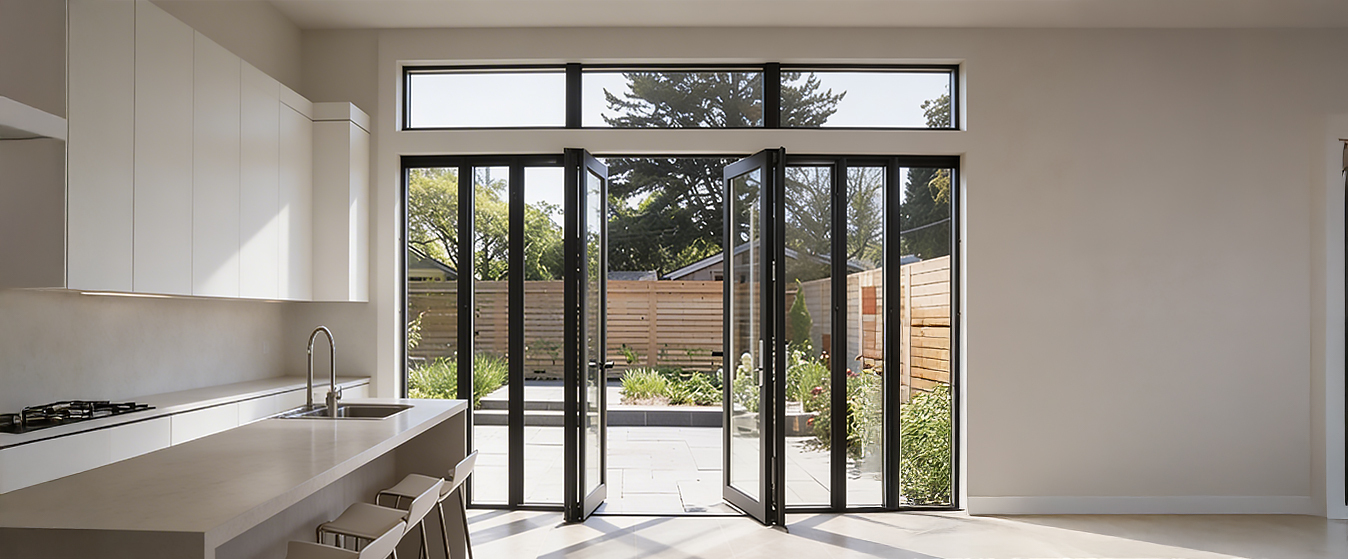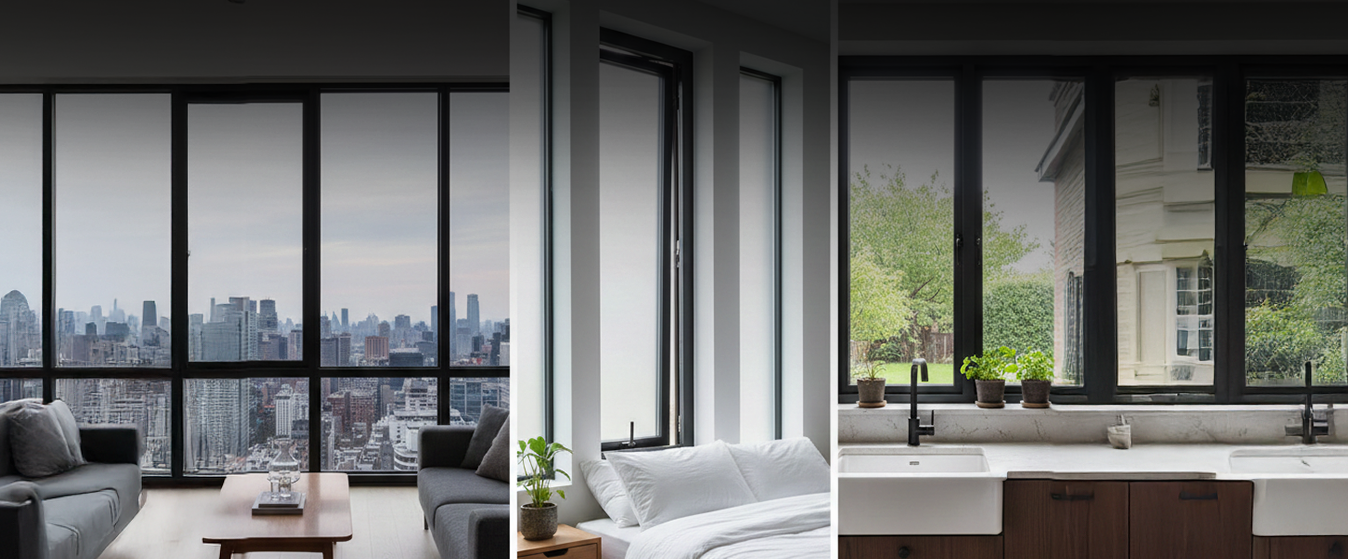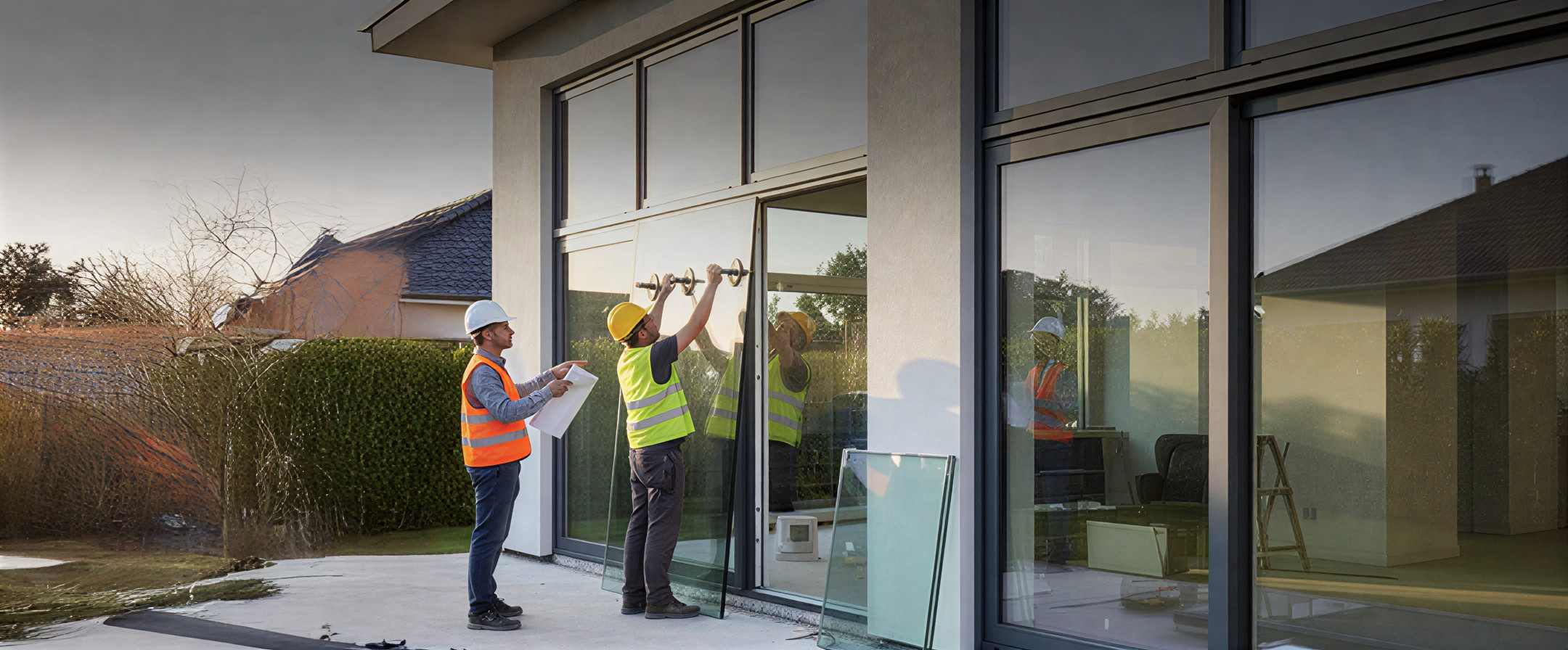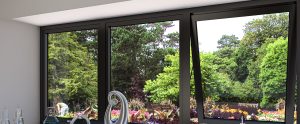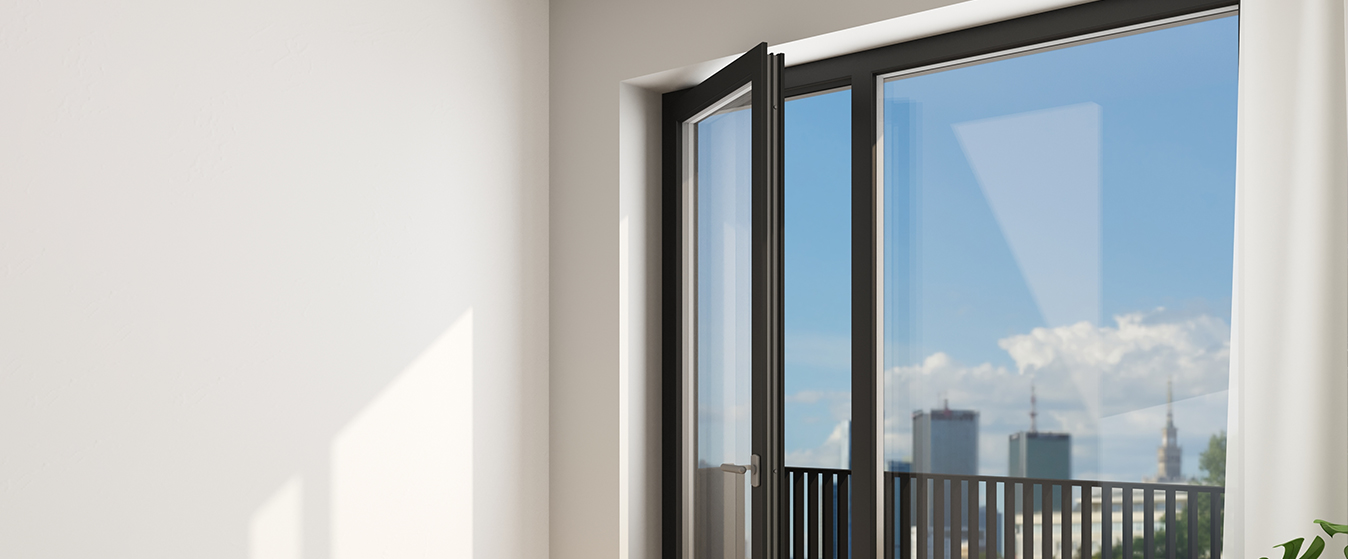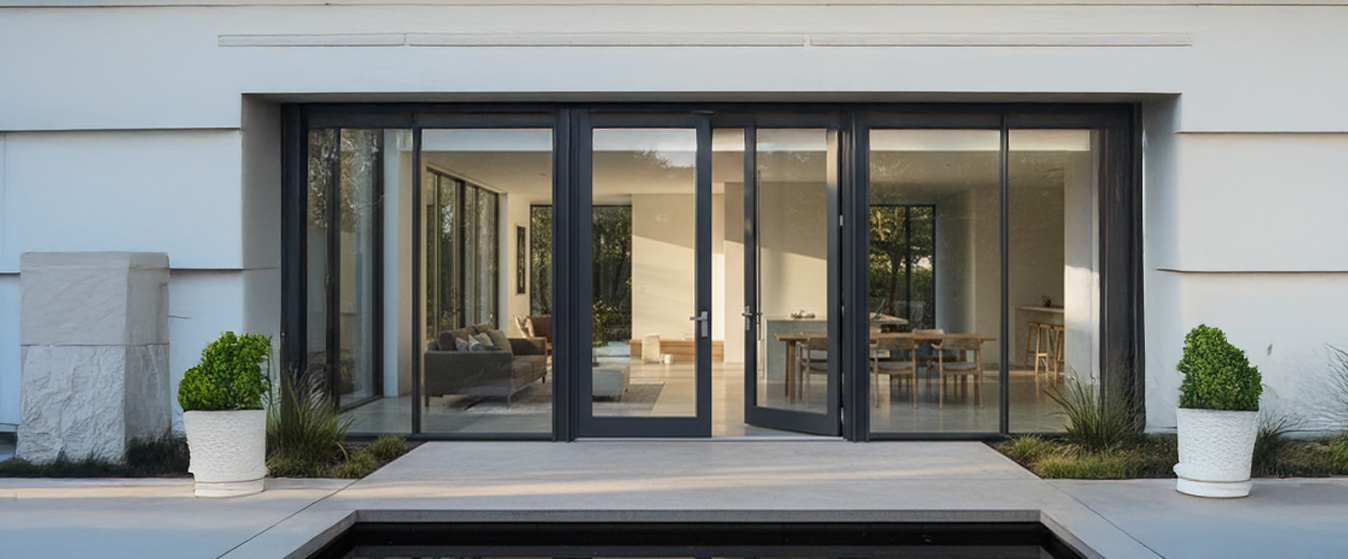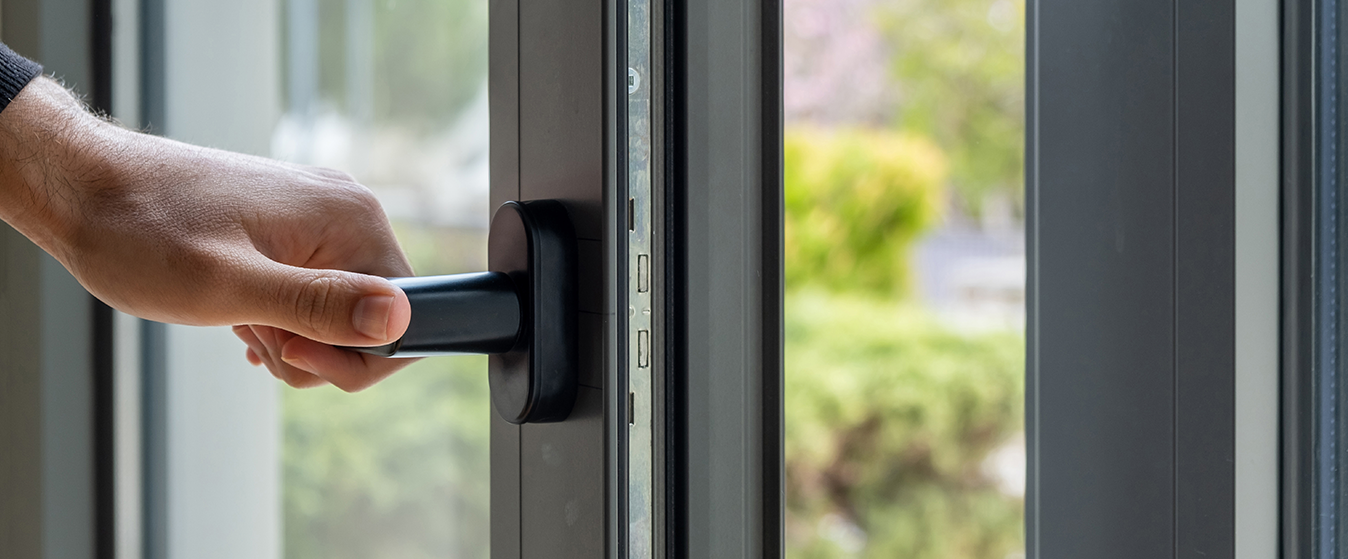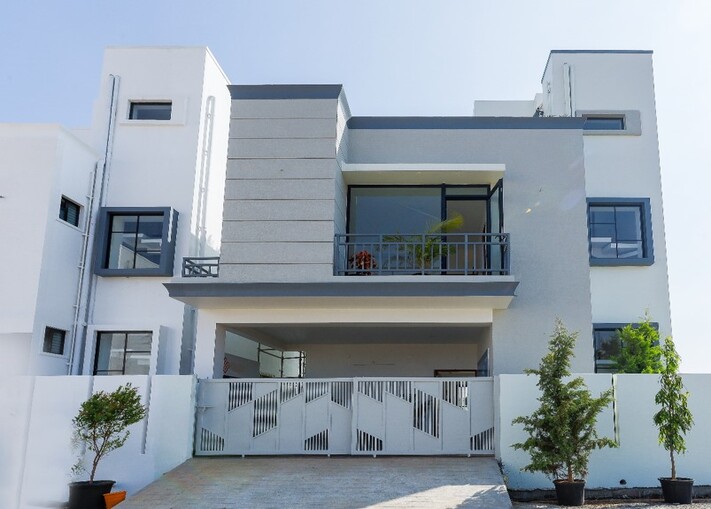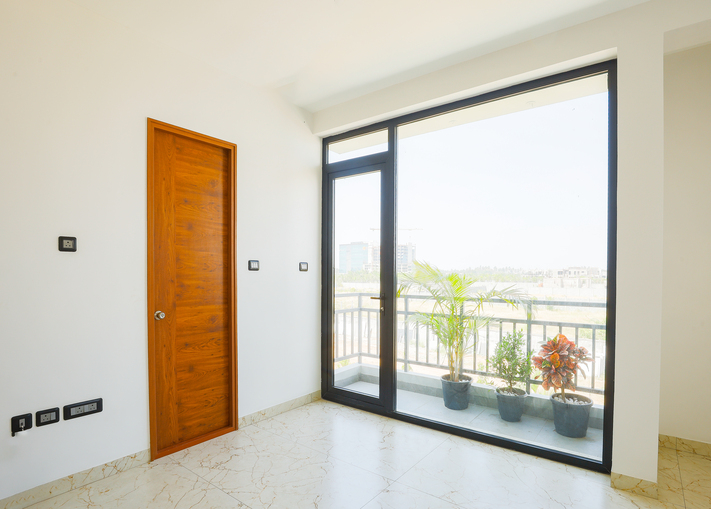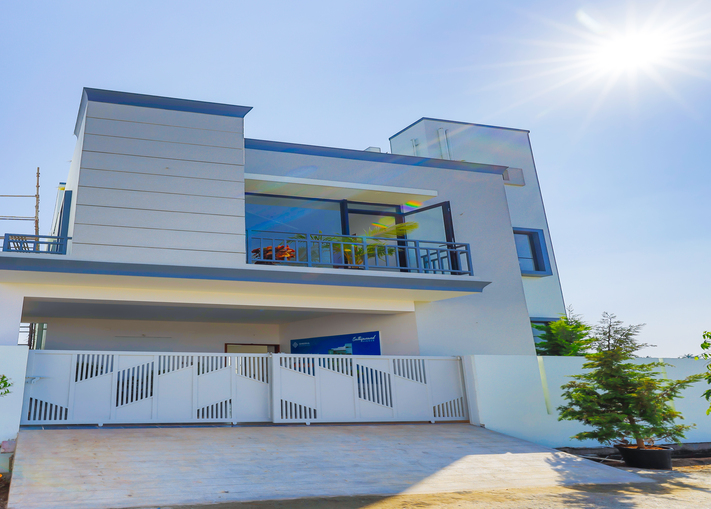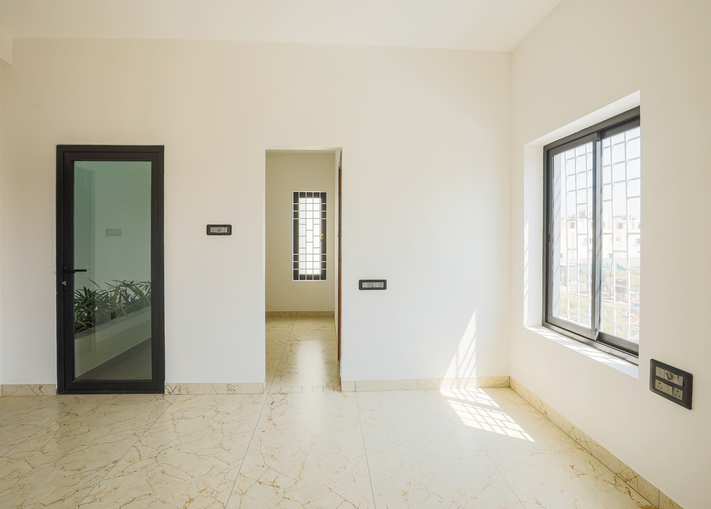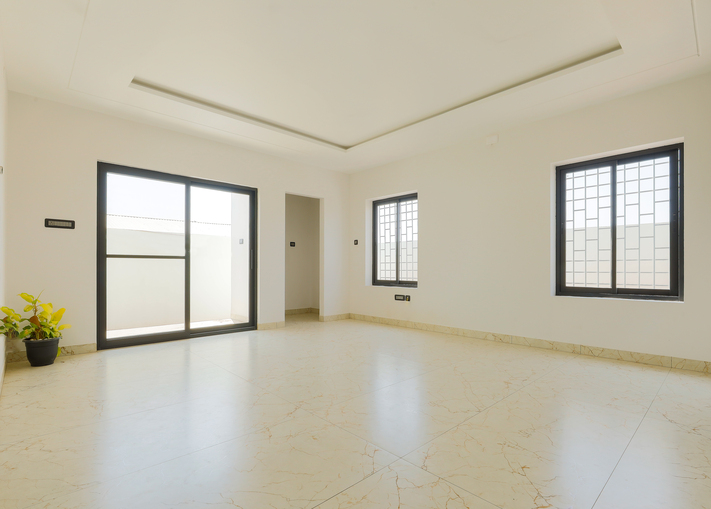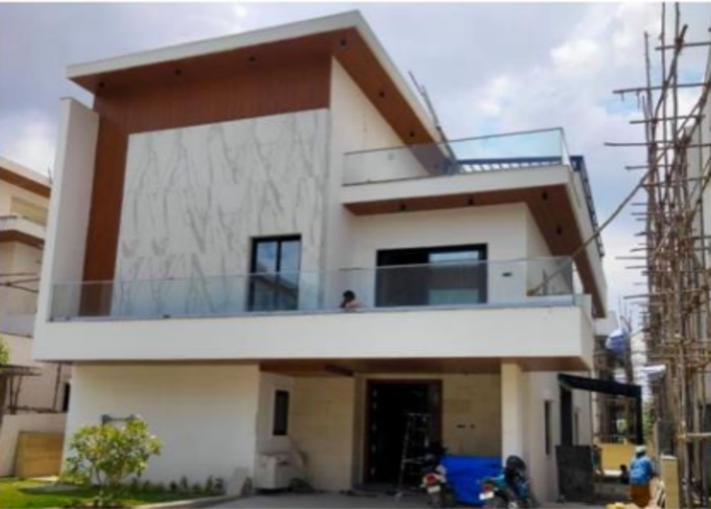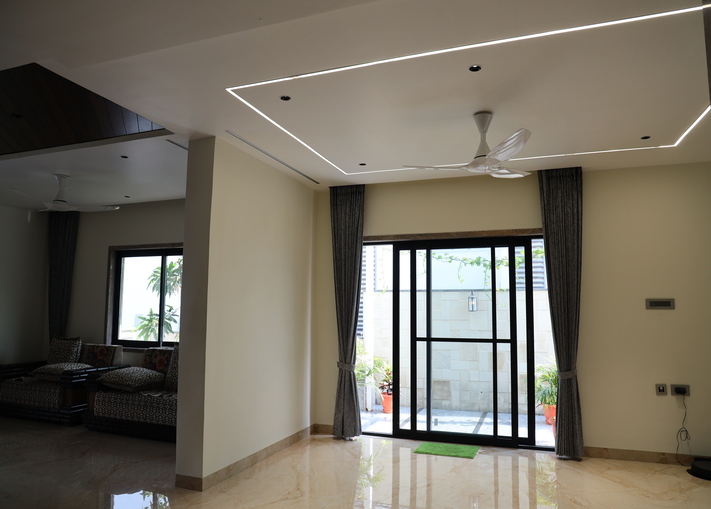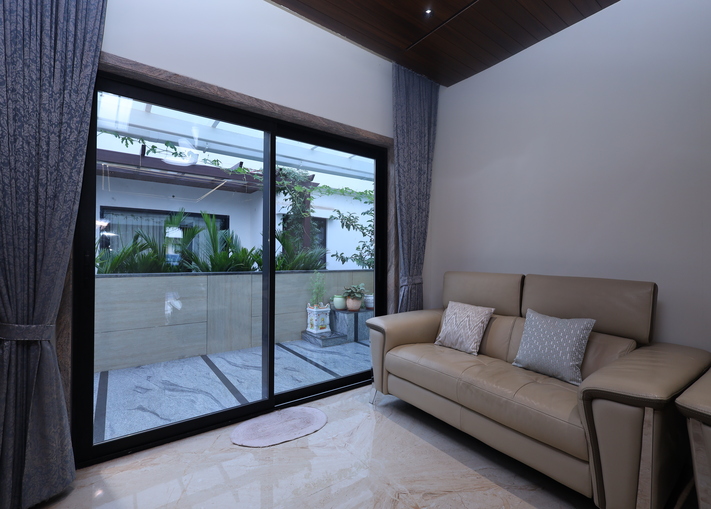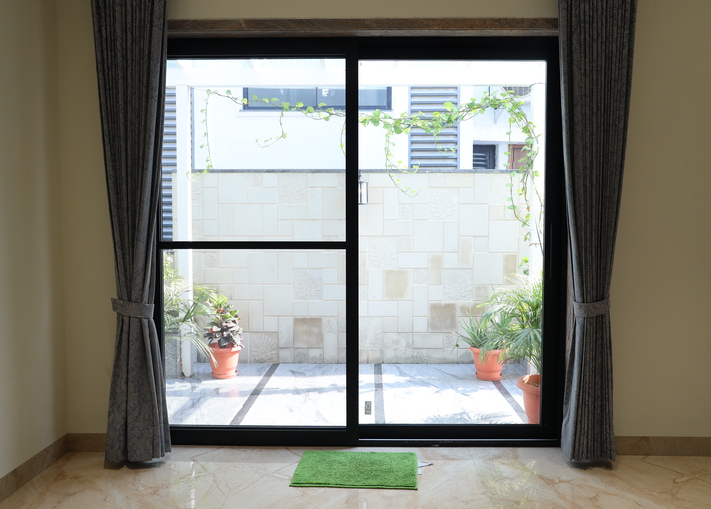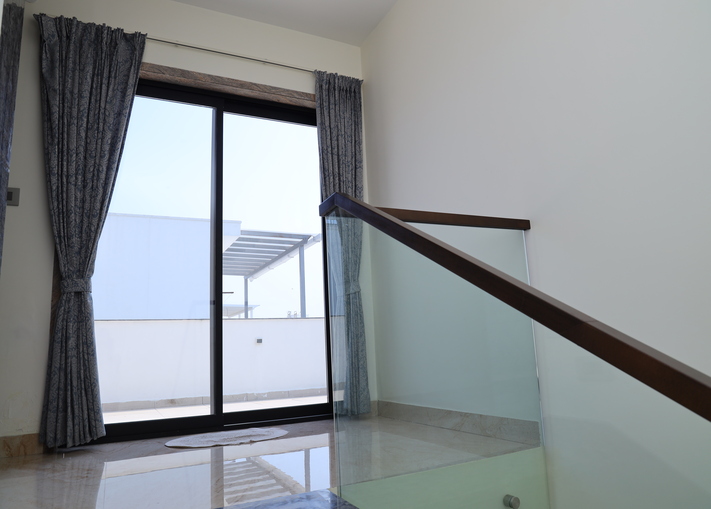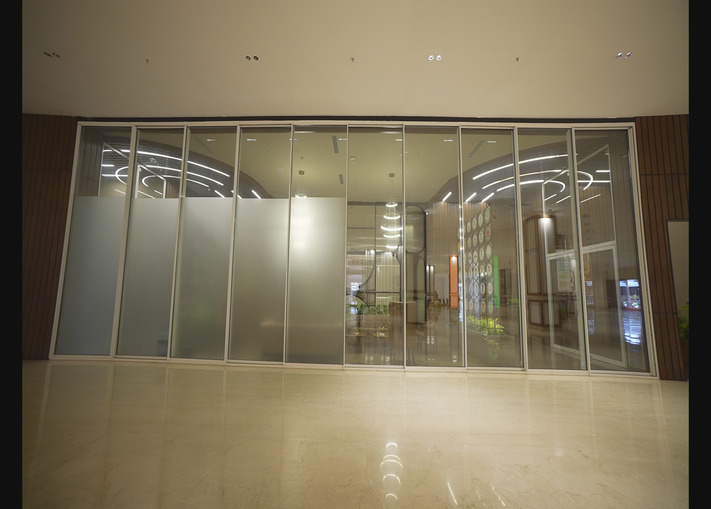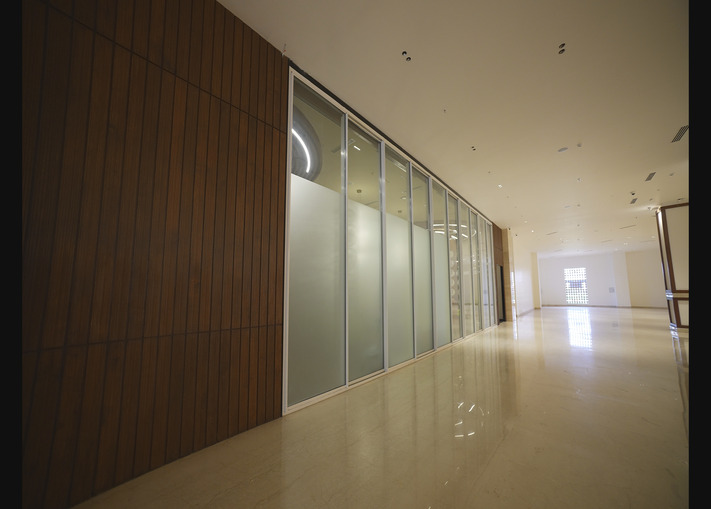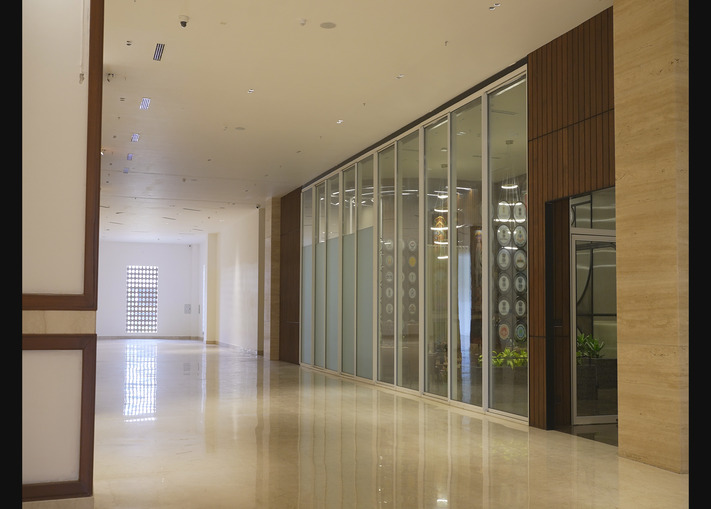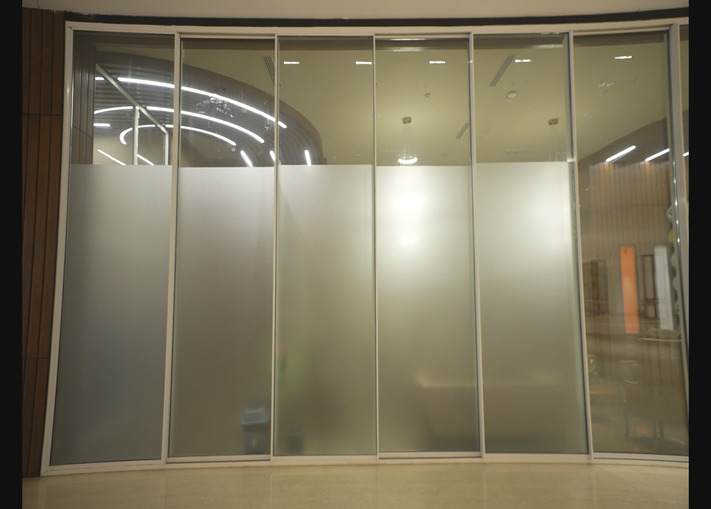How Aluminium Windows Improve Natural Ventilation in Modern Homes?
October 15, 2025
Natural ventilation is one of the most important yet often overlooked factors in home design.
Proper airflow keeps indoor spaces fresh, prevents humidity and pollutants, and creates a healthy living environment. It also affects comfort, energy efficiency, and overall quality of life.
And the key to achieving it is the window.
The type, material, and design of a window can significantly influence how air flows inside your home. While wooden and uPVC windows have been popular, aluminium windows for the home are increasingly chosen by architects and homeowners for their modern appeal and functional advantages.
This blog explores how modern aluminium window designs improve natural ventilation and create healthier, brighter living spaces.
What is Natural Ventilation and Why Does It Matter?
Natural ventilation allows fresh air to flow into your home, pushing out the stale indoor air. It works without mechanical systems and offers multiple benefits:
- Health Benefits: Proper ventilation reduces indoor pollutants, dust, and allergens. It also controls humidity, preventing mold growth.
- Comfort: Natural airflow keeps rooms cooler during warm weather and avoids stuffiness.
- Energy Savings: Allowing fresh air circulation reduces reliance on fans and air conditioners, saving electricity.
Aluminium windows with ventilation-friendly designs can significantly improve indoor air quality for homes in cities where air quality may be compromised.
Why Aluminium Windows are Ideal for Ventilation?
Aluminium is lightweight yet strong. Its strength allows slim frames, enabling larger glass panels. Larger openings mean more airflow and sunlight.
Here are the key reasons why aluminium windows are ideal for ventilation:
1. Slim Frames and Maximum Opening: Aluminium frames don’t block light or air. This makes them perfect for large openings that facilitate cross-ventilation.
2. Versatile Window Designs: Sliding, casement, tilt-and-turn, and top-hung aluminium windows allow you to select the airflow style best suited to each room.
3. Low Maintenance: Aluminium does not warp or swell, ensuring smooth operation for years with minimal care.
4. Efficiency: Aluminium windows with thermal breaks reduce heat transfer while still allowing fresh air circulation.
5. Customisable and Stylish: Powder-coated frames come in multiple colours and textures. You can match them with your home décor while ensuring proper ventilation.
These features make aluminium windows a design choice and a functional necessity for modern homes.
Modern Aluminium Window Designs for Maximum Airflow
The design of your windows determines how effectively your home is ventilated. Here’s a closer look at modern aluminium window designs that improve airflow:
1. Casement Windows
Casement windows are one-sided and open in outward direction. They allow the entire window area to capture airflow.
Benefits:
- Maximum ventilation is achieved when the entire window can open.
- It can be positioned to catch cross-breezes.
- Provide unobstructed views and natural light.
- Multi-point locks improve security.
2. Sliding Windows
Sliding aluminium windows move horizontally along a track. They are perfect for homes with limited space.
Benefits:
- Do not project outward or inward, saving space.
- Wide openings allow continuous airflow.
- Smooth operation with minimal effort.
- Great for balconies, patios, and urban apartments.
3. Top-Hung Windows
Top-hung aluminium windows are hinged at the top and open outward.
Benefits:
- Allow ventilation even during light rain.
- Controlled airflow prevents drafts.
- Suitable for bedrooms, bathrooms, and kitchens.
4. Tilt and Turn Windows
Tilt-and-turn aluminium windows offer two functions. They tilt inward at the top for gentle ventilation or open fully like a casement window for maximum airflow.
Benefits:
- Partial or complete ventilation, depending on need.
- Better indoor air quality and circulation.
- Easy to clean from the inside.
- Improve security and energy efficiency.
How Aluminium Windows Improve Home Comfort?
Natural ventilation isn’t the only benefit of aluminium windows. They also improve home comfort:
- Optimal Airflow: Adjustable openings allow precise airflow control, keeping rooms fresh and airy.
- Noise Reduction: When combined with double glazing, aluminium windows reduce street noise, making homes quieter and more relaxing.
- Sunlight Integration: Large glass panels ensure airflow without losing daylight. This makes rooms feel spacious and welcoming.
In the section below, let’s see what other benefits proper ventilation offers.
Another Benefit of Aluminium Windows and Proper Ventilation
1. Boosting Mood and Well-Being
Air quality and natural airflow directly influence mood, productivity, and overall well-being:
- Fresh air reduces fatigue and stress.
- Sunlight entering through aluminium windows boosts energy levels.
2. Proper ventilation supports better sleep patterns.
For example, east-facing aluminium windows in a study or home office provide morning sunlight and fresh air, energising the space.
Bedrooms with strategically placed windows enjoy gentle evening light and natural airflow, promoting relaxation.
3. Energy Efficiency and Sustainability
Aluminium windows not only improve airflow but also contribute to energy efficiency and sustainability:
- Thermal Breaks: Reduce heat transfer, keeping homes cool in summer and warm in winter.
- Passive Cooling: Well-designed openings support natural airflow, reducing reliance on air conditioning.
- Longevity: Aluminium frames last for decades without warping or corrosion.
- Eco-Friendly: Fully recyclable and low-maintenance, aluminium windows support sustainable building practices.
Installation Tips for Maximum Ventilation
To optimize natural airflow, installation is key:
1. Strategic Placement: Place windows to maximize cross-ventilation. Consider prevailing winds and indoor air circulation.
2. Orientation: East or north-facing windows can enhance airflow and sunlight.
3. Size and Height: Larger windows allow more airflow and better light, and top windows can effectively expel hot air.
4. Professional Installation: Ensures proper sealing, smooth operation, and maximum ventilation benefits.
Maintenance Tips for Aluminium Windows
Aluminium windows are easy to maintain:
- Clean frames with mild detergent and water.
- Inspect sliding tracks or hinges periodically.
- Avoid harsh chemicals to maintain powder-coated finishes.
- Regular checks ensure longevity and optimal ventilation.
Compared to wood, aluminium maintains its shape and function for decades, making it ideal for long-term comfort and airflow.
Conclusion
Proper ventilation is vital for a healthy, comfortable, and energy-efficient home. Aluminium windows allow fresh air to circulate while complementing modern architectural designs.
From casement to tilt-and-turn, modern aluminium window designs offer flexibility, style, and functionality. They improve comfort, reduce energy bills, and support well-being.
For homeowners looking for aluminium windows for home that provide durability, elegance, and optimal ventilation, Alteza provides premium solutions customised to your needs.
Contact us to upgrade your home with us today.
FAQ’s
Q1. How do aluminium windows improve natural ventilation?
A. Aluminium windows allow wider openings because of their slim yet strong frames. This design lets more fresh air enter the room. Different window types, like casement or tilt-and-turn, can be opened fully or partially to control airflow. Strategically placing aluminium windows in rooms facing prevailing winds or opposite each other enhances cross-ventilation, ensuring a constant fresh air flow. This helps remove stale air and keeps indoor spaces comfortable.
Q2. Which aluminium window design is best for airflow?
A. Below are the best window designs for maximum airflow:
- Casement windows open fully outward, drawing in fresh air and pushing out warm, stale air.
- Tilt-and-turn windows offer two functions: tilt for gentle airflow or open fully for maximum ventilation.
- Sliding windows are great for limited spaces, offering airflow without obstructing movement.
- Top-hung windows are perfect for controlled ventilation, allowing air in even during light rain.
Q3. Can aluminium windows help control indoor humidity?
Properly placed aluminium windows improve air circulation, which helps reduce humidity levels. These windows prevent dampness and mold growth by letting moisture-laden air to escape and fresh air to enter. For example, kitchens and bathrooms benefit from top-hung or casement aluminium windows that promote ventilation while keeping interiors dry and comfortable.
Q4. Are aluminium windows energy-efficient?
A. Aluminium windows can be fitted with thermal breaks and double-glazing, reducing heat transfer indoors and outdoors. This means your home stays comfortable during extreme weather, reducing reliance on air conditioners or heaters. At the same time, aluminium windows allow controlled airflow, providing natural cooling without increasing energy costs.
Q5. Can aluminium windows be customized to match my home’s design?
A. One of the best advantages of aluminium windows is customization. Frames can be powder-coated in different colors and textures, including matte, glossy, and wood-grain finishes. You can choose the shape, size, and window type, such as sliding, casement, top-hung, or tilt-and-turn, to fit your room’s ventilation needs and aesthetic preferences. This ensures a perfect blend of style, function, and comfort.
Q6. Do aluminium windows require frequent maintenance?
A. Aluminium is naturally corrosion-resistant and does not warp or swell like wood. Cleaning is simple, wipe the frames with a mild detergent and water. Periodically check sliding tracks or hinges for smooth operation. Unlike traditional materials, aluminium frames maintain their shape, color, and functionality for decades with minimal effort.
Q7. How do aluminium windows contribute to a healthier living environment?
Aluminium windows reduce indoor pollutants, allergens, and moisture accumulation by allowing more natural airflow. This circulation ensures that dust, cooking fumes, and indoor odors are efficiently removed. Moreover, the combination of larger glass panels and proper ventilation maximizes sunlight exposure, which can inhibit bacteria and mold growth, creating a fresher and more hygienic indoor environment.


